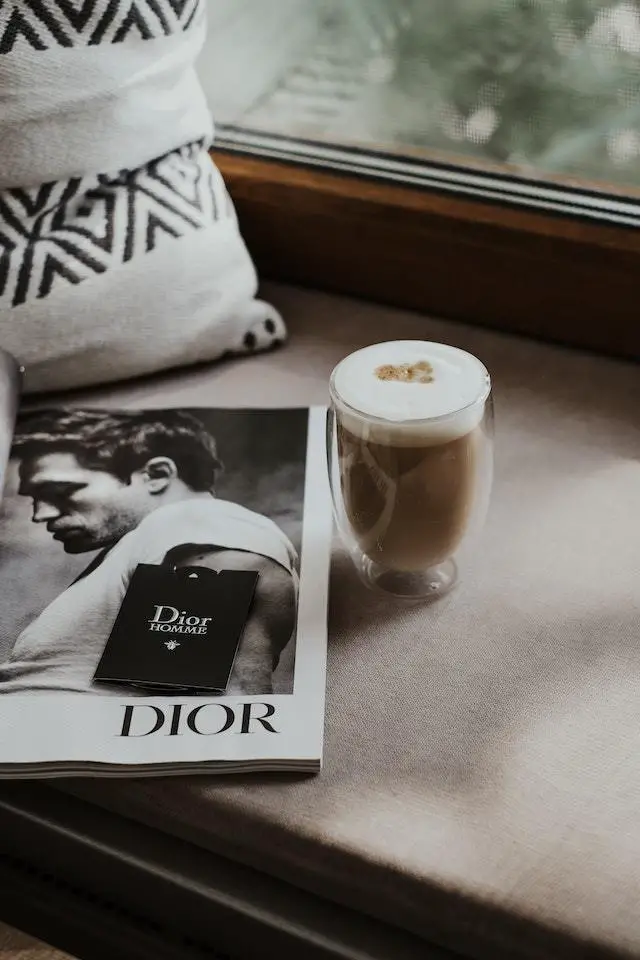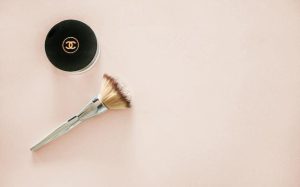In the world of luxury fashion, the Gucci vs. Dior case study offers a fascinating glimpse into how two iconic brands have navigated an ever-changing landscape.
Explore this case study to discover the tactics used by these two powerhouses to stay competitive and relevant in today’s rapidly changing market.
From Dior’s transformative journey under LVMH with its expansion into e-commerce platforms and immersive flagship stores, to Gucci’s unwavering focus on building strong customer relationships through innovative services like fast delivery timescales and free returns – there is much to learn from their approaches.
You will also gain insights into digital performance metrics in China, highlighting the importance of brand story for maintaining customer loyalty levels and examining strategies used by competitors such as Louis Vuitton or Chanel.
The Gucci vs. Dior case study further explores global marketing campaigns across luxury brands that leverage celebrity endorsements or collaborations while targeting specific regional markets with creative campaigns.
Lastly, we’ll discuss how both brands adapt their strategies to global trends and competition by evolving product offerings to meet changing consumer preferences and utilizing digital platforms for effective marketing campaigns.
This captivating exploration promises a wealth of knowledge for anyone passionate about fashion, lifestyle, or simply understanding what it takes to thrive at the pinnacle of any industry.
Table of Contents:
- Dior’s Transformation Under LVMH
- Gucci’s Focus on Customer Relationships: A Masterclass in Luxury Engagement
- Digital Performance Metrics in China: Gucci vs. Dior
- Global Marketing Campaigns Across Luxury Brands
- Adapting Strategies to Global Trends and Competition
- FAQs in Relation to Gucci Vs. Dior Case Study
- Conclusion
Dior’s Transformation Under LVMH
Let’s talk about the incredible transformation of Dior since its acquisition by LVMH in 2017.
The brand has experienced rapid growth, with sales tripling from a‚¬2.2 billion to a whopping a‚¬6.6 billion in 2023.
This scale allowed for significant investments in runway shows and boutiques while overhauling its product offer and communications strategy.
Expansion into E-commerce Platforms
Dior made a strategic move to expand into e-commerce platforms, catering to the modern consumer who loves shopping online.
The move to expand into e-commerce allowed customers the convenience of obtaining their desired luxury products without having to leave home.
Immersive Flagship Stores as Destinations for Brand Devotees
Apart from digital presence, Dior focused on creating immersive flagship stores that serve as destinations for brand enthusiasts worldwide.
These flagship stores provide unique experiences where customers can immerse themselves in the world of Dior and feel connected to the brand on a deeper level.
Gucci vs. Dior: Contrasting Approaches to Luxury and Opulence Case Study Summary:
- Digital Performance Metrics: While both Gucci and Dior have impressive digital performance metrics, Dior leads in awareness but falls behind when it comes to purchase intent compared to Q1 data.
- Global Marketing Campaigns: Luxury brands like Gucci and Dior leverage celebrity endorsements, collaborations, and creative campaigns targeting specific regional markets for effective marketing worldwide.
- Adapting Strategies: Both brands continue to innovate and adapt their strategies according to global trends while facing competition from leading players such as Hermes, Chanel, Louis Vuitton, Prada, Versace, and Yves Saint Laurent.
In this ever-changing world of fashion and luxury retailing landscape where supply chain management plays a crucial role in success stories like these two iconic brands – Gucci & Dior, the key is constant innovation combined with a customer-centric approach ensuring long-term growth trajectories amidst fierce competition.
Aren’t you excited about what’s next?
Dior has experienced significant growth since its acquisition by LVMH, with sales tripling to a‚¬6.6 billion in 2023 and investments made in runway shows, boutiques, e-commerce platforms, and immersive flagship stores. In contrast to Gucci’s approach to luxury and opulence, Dior focuses on constant innovation combined with a customer-centric approach for long-term growth trajectories amidst fierce competition from leading players such as Hermes, Chanel, Louis Vuitton, Prada Versace & Yves Saint Laurent.
Gucci’s Focus on Customer Relationships: A Masterclass in Luxury Engagement
Let’s dive right in.
Gucci, the iconic Italian luxury brand, has been winning hearts and wallets by prioritizing customer relationships above all else. This case study is a testament to their success.
So, how does Gucci do it?
Digital Performance Metrics in China: Gucci vs. Dior
China’s booming digital performance sector is a battleground for luxury brands like Gucci and Dior. In this blog post, we’ll dive into how these two fashion giants fare in terms of awareness metrics and purchase intent, as well as the strategies they employ to maintain customer loyalty levels.
Importance of Brand Story for Maintaining Customer Loyalty Levels
A strong brand story can make or break a luxury brand’s success in China. Gucci has managed to establish an identity that resonates with Chinese consumers, resulting in highly personal relationships with its customers. Gucci’s storytelling approach combines its rich history with modern elements, ensuring it remains relevant and appealing to today’s audience.
Strategies Used by Competitors Like Louis Vuitton or Chanel
In contrast, Dior leads regarding awareness metrics but falls behind when it comes to purchase intent compared to Q1 data. To stay competitive, both Gucci and Dior must learn from other successful players such as Louis Vuitton or Chanel, who have mastered the art of connecting with their Chinese audience. These brands often leverage celebrity endorsements, limited-edition products, and exclusive events to create buzz and drive sales.
Adapting Strategies for the Chinese Market
To succeed in China’s digital performance sector, luxury brands must adapt their strategies to cater to local preferences. This includes utilizing popular platforms like Weibo and WeChat for marketing campaigns that resonate with Chinese consumers. Moreover, understanding cultural nuances is crucial when crafting messages that appeal to this diverse audience while staying true to the brand’s identity.
Key Takeaways: Gucci vs. Dior in China
In summary, both Gucci and Dior have unique strengths in China’s digital performance sector but face fierce competition from other luxury players such as Louis Vuitton or Chanel. Maintaining customer loyalty levels requires a strong brand story combined with effective marketing strategies tailored specifically for the Chinese market.
Gucci and Dior are competing in China’s digital performance sector, with Gucci establishing a strong brand story that resonates with Chinese consumers while Dior leads in awareness metrics but falls behind in purchase intent. To stay competitive, both brands must adapt their strategies to cater to local preferences and learn from successful players like Louis Vuitton or Chanel who leverage celebrity endorsements, limited-edition products, and exclusive events to create buzz and drive sales.
Global Marketing Campaigns Across Luxury Brands
Global marketing campaigns are a key factor in establishing brand recognition and increasing sales within the luxury fashion industry, as exemplified by Gucci and Dior’s distinctive strategies. Both Gucci and Dior have unique approaches to this aspect of their business strategies, which we’ll explore here with some fascinating examples.
Leveraging Celebrity Endorsements or Collaborations
Celeb support is a well-known technique for luxury labels like Gucci and Dior to get attention around their items. The right celebrity collaboration can significantly boost the brand’s visibility and desirability among consumers worldwide. A recent example is Boss’ campaign featuring Taiwanese actor Wallace Huo as the “Man of Today,” which garnered an impressive 280 million reads on Weibo.
Creative Campaigns Targeting Specific Regional Markets
Beyond celebrity partnerships, both Gucci and Dior excel at crafting creative campaigns that resonate with specific regional markets across the globe. This approach allows them to cater to diverse cultural preferences while maintaining a consistent brand identity overall. Gucci’s “Forever Now” campaign, for instance, pays homage to classic American cinema while showcasing its latest collection.
So, what can we learn from Gucci and Dior’s global marketing strategies?
Firstly, celebrity endorsements or collaborations remain a powerful tool for luxury brands to create buzz around their products. Secondly, designing creative campaigns that target specific regional markets is essential for catering to diverse cultural preferences while maintaining a consistent brand identity. Lastly, always remember the importance of balancing universal appeal with regional relevance in your marketing efforts.
Adapting Strategies to Global Trends and Competition
Hey there, fashion enthusiasts.
Let’s explore how Gucci and Dior adjust their strategies to global trends while contending with the challenge posed by luxury titans such as Hermes, Chanel, Louis Vuitton, Prada, Versace and Yves Saint Laurent.
Are you ready?
Evolving Product Offerings to Meet Changing Consumer Preferences
Innovation is key in the world of luxury fashion.
Gucci has been known for its Epilogue collection, which breaks traditional seasonal rules and embraces a more sustainable approach towards production. Gucci is demonstrating its aptitude for modernity by introducing the Epilogue collection, which breaks away from traditional seasonal rules and pursues a more sustainable approach to production.
Dior isn’t far behind either with its Spring-Summer 2023 Ready-to-Wear Show, showcasing nature-inspired designs that resonate with today’s eco-conscious consumers. This is a smart move by Dior to stay relevant and appeal to a wider audience.
Utilizing Digital Platforms for Effective Marketing Campaigns
The digital age demands an online presence.
Gucci’s brand story takes center stage on social media platforms such as Instagram and TikTok where they engage millions of followers through creative campaigns featuring celebrities or influencers. This is a great way to build brand awareness and maintain customer loyalty.
Dior too leverages digital channels like YouTube for live streaming their runway shows – making them accessible to fans worldwide. Check out their YouTube channel for a front-row experience.
Now, let’s talk about some key takeaways from these luxury brands’ strategies.
- #1: Stay ahead of the curve by constantly evolving your product offerings to meet changing consumer preferences and global trends.
- #2: Embrace digital platforms as powerful marketing tools that can help you reach wider audiences and maintain customer loyalty levels in an increasingly competitive marketplace.
- #3: Never underestimate the power of a compelling brand story – it helps build strong connections with customers and sets you apart from competitors.
If Gucci and Dior can do it, so can other fashion brands. Continue to devise fresh ideas, alter and adjust according to the latest fads worldwide for a prosperous future in this dynamic industry. Happy strategizing.
Gucci and Dior stay ahead of the competition by adapting their strategies to global trends. They evolve their product offerings, utilize digital platforms for effective marketing campaigns, and tell compelling brand stories to build strong connections with customers. The key takeaways are to constantly innovate, embrace digital channels, and never underestimate the power of a good brand story in the ever-changing fashion industry.
FAQs in Relation to Gucci Vs. Dior Case Study
What are the key success factors of Gucci?
Gucci’s success can be attributed to its strong brand identity, innovative designs, and focus on customer relationships. The brand has effectively utilized digital platforms for marketing campaigns and leveraged celebrity endorsements to increase visibility. Additionally, Gucci adapts to global trends by evolving product offerings and targeting specific regional markets.
What makes Dior so successful?
Dior’s transformation under LVMH has led to its success through creative leadership, exclusive collaborations, and a focus on craftsmanship. The brand consistently delivers timeless elegance while embracing modernity in design. Expansion into e-commerce platforms and immersive flagship stores further strengthens Dior’s position as a leading luxury fashion house.
What differentiates Gucci from other brands?
Gucci stands out due to its unique blend of contemporary style with vintage elements that reflect Italian heritage. Its commitment to sustainability initiatives also sets it apart from competitors. Moreover, the brand focuses on providing exceptional customer experiences through fast delivery timescales, free returns, find-in-store options, and gift wrapping services.
How does Gucci attract customers?
Gucci attracts customers by creating an emotional connection through storytelling that emphasizes their rich history and values. This is achieved via engaging marketing campaigns across digital channels featuring influential celebrities or collaborators who resonate with target audiences globally.
Conclusion
In conclusion, the Gucci vs. Dior Case Study highlights the importance of adapting strategies to global trends and competition in the luxury fashion industry. Both brands have successfully leveraged digital platforms for effective marketing campaigns and expanded into e-commerce to reach a wider audience.
Gucci’s focus on customer relationships through their e-shop, with fast delivery timescales, free returns, find-in-store options, and gift wrapping services, has helped them maintain a loyal customer base. Meanwhile, Dior’s immersive flagship stores, as destinations for brand devotees, and expansion into e-commerce platforms have transformed the brand under LVMH.







